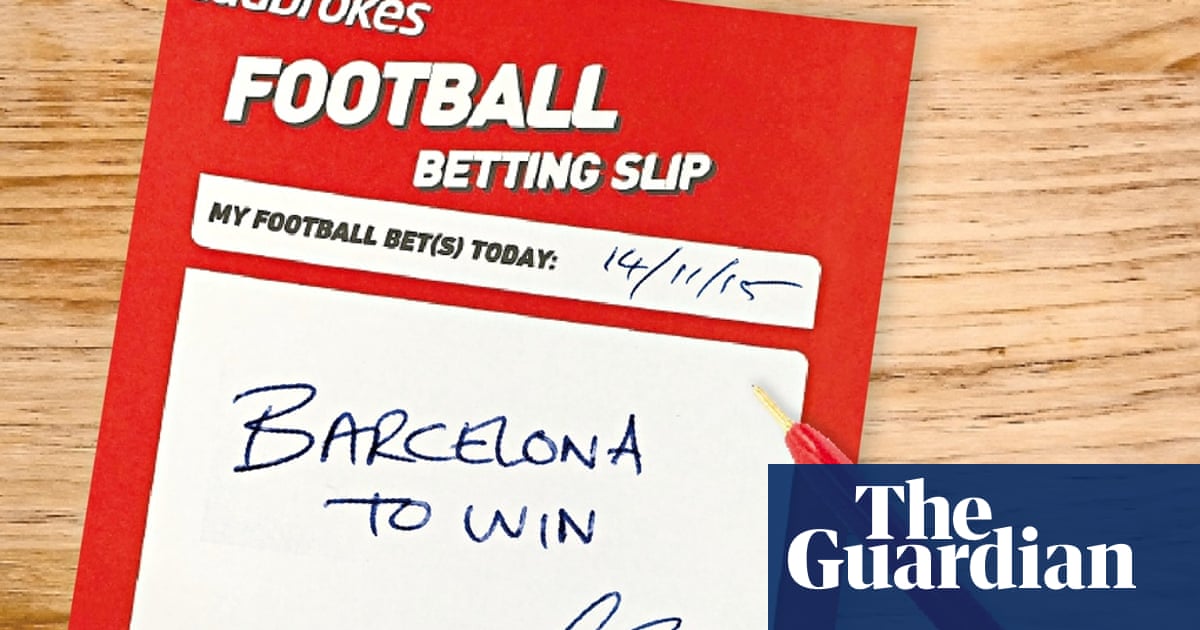How Does Football Betting Work
Live betting, also known as in-play or in-running betting, is the process of placing a bet on a sporting event after it has started. For example, you can bet on different aspects of a football match after it has already kicked off and throughout the duration.

It takes away the need to study statistics and puts you at the heart of the action, giving you the chance to change your bet or place a new one during the event. When you’re feeling ready you can check out this site to find the best live sports betting options.
Explaining Live Betting
How does live betting work? I hear you all mutter.
Well, basically, the online sportsbook you’re using will have set odds on a match or event before it takes place.
Usually the total money is divided by 5, and is paid out as follows. 1 st quarter, Halftime, and 3 rd quarter all get a 1/5 of the total bank and the Final Score doubles this to 2/5. So if you were involved on a $5 dollar pool and all 100 squares were filled that would be $500 to be paid out.
These odds will change several times after the event starts, depending on what happens.
For a bet on them to be successful, they would therefore have to win by four points or more. The Colts, on the other hand, will have 3.5 points added to their final score. A bet on them would be successful if they won the game, or lost by 3 points or less. How does NFL betting work? There are several ways to bet on NFL action. We’ll begin with the most simple type of bet: The moneyline. Taking the Moneyline means you’re betting on the winning team regardless of the margin of victory. Underdogs will get plus-odds on the moneyline and the favorites will have negative odds.
If Team A were an odds-on favourite before kick-off and Team B takes the lead after a couple of minutes, the odds will change to reflect this. Team A may still be favourites to win, but they now have less chance of doing so. This will raise their odds.
Therefore, a person wishing to bet on Team A will get better odds than they would have if they’d placed the bet before the game started.
It isn’t just goals in a football match that change the odds. Every action during a sporting event will change the potential outcome, altering the betting odds in the process.
How Does Betting On Football Work

The odds are decided by the individual sportsbook, using a computer algorithm which constantly updates the information. Then, depending on what is happening in the event as well as past outcomes of similar events, the odds are changed.
When something significant happens during the event, the sportsbook will usually suspend betting for a few seconds so the computer can work out the new odds. Betting will then continue. This will happen several times throughout an event, giving you up-to-date odds reflecting what is happening in the live event.
More Ways to Win
There are several advantages to betting live, or in-play.

Firstly, you can see what’s happening before deciding to gamble your hard-earned cash. If you fancied a team in a match which looked too close to call, you could wait until after the first few minutes have been played before placing a bet.
There’s also the added possibility of betting on different aspects of the event, like picking the winner of the next frame in a game of snooker or betting on who will win the next point in a tennis match.
This gives the punter more ways to win, as it provides several different betting options they didn’t have before the event started.
One of the main benefits is the ability for the punter to change their mind during an event.
Maybe, the bet on Team A looked like a “dead cert” after studying statistics before the match. However, after thirty minutes when they’re a goal down and have had a player sent off, the bet doesn’t seem so great after all.
The punter can now place an opposing bet, using the new information acquired since the game started.
Basically, it gives the punter more chance of winning because they have more knowledge of a sporting event than they did before.
Obviously, as with any form of gambling, this isn’t a certain way of winning. A deflected last minute goal or a missed pink to the middle pocket may mean the punter still loses.
Want some live betting tips?
Our expert tipster offers live betting tips to some select folk, if you would like to talk to him about this, please fill in the form in our live betting section.
How Does Sports Gambling Work
Be Responsible
Live betting gives you the potential to place different bets on several different outcomes throughout the duration of a sporting event.
This means there’s an increased potential of losing a lot of money. Therefore, anyone wishing to gamble in this way must set themselves a limit before the event and stay calm and clear-headed throughout. Remember a good strategy is to focus on losing less.
It’s easy to become frustrated and/or annoyed if you place a bet on one team, only for the opposition to score a minute later. Gambling when your judgement isn’t clear is a sure-fire way of emptying your wallet or bank balance.
So, set yourself a limit and have fun. After all, gambling is a form of entertainment and live betting will add to the excitement if you do it responsibly.

Want to read more?
As a fan, you don’t care if your team wins by a point or 100. A win is a win, though that 100-point win would be a little easier on the nerves.
In sports betting, how much a team wins by is usually all that matters.
The most popular way to bet for the two most popular sports, basketball and football, is with the point spread, also known as the “side.” Most baseball, hockey and soccer bets are on the moneyline, which is betting on a team to win straight up with adjusted odds. Football and basketball have moneyline bets available too, but most people will take the point spread.
The concept can be a bit confusing if you’ve never dabbled in sports betting before.
Why bet with the point spread?
The point spread was created to attract more action on a game. When the San Francisco 49ers are expected to blow out the Arizona Cardinals, it’s not enticing to lay $300 to win $100 on a moneyline. But when the 49ers are 11-point favorites and each side is -110 odds? That’s much easier.
In that example, the 49ers are spotting the Cardinals 11 points before the game starts, at least for bettors. The 49ers have to win by 12 or more points to cover the spread. If the Cardinals win or lose by 10 or less, that side wins the bet. If the game lands on 11, like a 21-10 49ers win, it’s a push and all bets are refunded. If you see a -11 that means that team is favored, and +11 means you’re taking the underdog.
Nothing sharpens your math skills better than trying to figure out how big your lead as a bettor is if you have a 22.5-point basketball underdog that is losing 90-72.
The problem with the point spread can be when a team — which really doesn’t care that you bet the favorite at -11 — has a 14-point lead but gives up a meaningless score at the end to win by only seven points. They’re still happy with the win. You, as a bettor, are not.
© Provided by Yahoo! Sports Sportsbooks have large boards that display point spreads for all games that day. (AP Photo/John Locher, File)Point spreads lead to bad beats
The most infamous example of a bad beat with the point spread probably came in the 2004 Final Four at the NCAA men’s basketball tournament.
Duke was a 2.5-point underdog against UConn. The Huskies rallied late and took a 79-75 lead on a free throw with 3.2 seconds left. The game itself was over; Duke couldn’t score twice in a few seconds. But Duke guard Chris Duhon pulled up for a running 3-pointer just over the half-court line and banked it in at the buzzer. Duke lost 79-78, but bettors who had Duke and 2.5 points won. March Madness is a huge event for bettors, and reports at the time estimated that Duhon’s “meaningless” shot resulted in a $30 or $40 million swing in Nevada. UConn players celebrated at the final buzzer. UConn bettors doubled over in pain. That’s the difference between betting the moneyline and the point spread.
Baseball and hockey have point spreads too, the “run line” in baseball and “puck line” in hockey. It’s generally 1.5 with odds adjusting accordingly. Taking a big baseball favorite at -1.5 runs can make the odds more palatable. Of course, betting the New York Yankees at -1.5 to bring down the odds from -190 to -110 isn’t too fun when they win 4-3 and you don’t cash a bet.
Betting on the point spread is the most common way to wager on sports. And the first time you take a favorite that wins the game but doesn’t cover the spread, you’ll understand every bettor’s heartbreak.